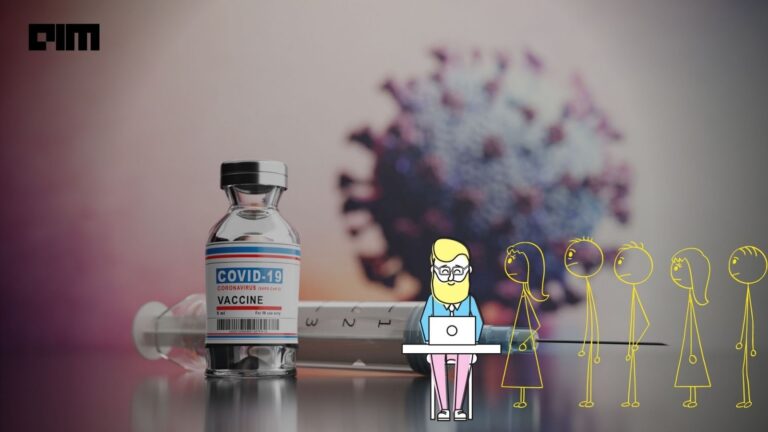Effective immunisation programs have wiped off a slew of deadliest diseases from the face of the earth. As per WHO estimates, vaccination averts 4-5 million deaths every year.
COVID-19 pandemic has claimed over 2,50,000 lives in India till now. With a population of 1.35 billion people, running a vaccination programme in India is a Herculean task. To make the vaccination process smoother and faster, the government has turned to technology. The government is pushing online registration and slot booking to streamline vaccine administration, inventory management, outcome monitoring, and necessary support for frictionless distribution of billions of vaccine doses.
Like every other field, digitalisation is poised to accelerate progress in healthcare too. But, is hyper-digitalisation (COVID-19 vaccination drive, as a case in point) a valid solution for a country with massive power imbalance, digital literacy gap, and inequality?
CoWin
CoWIN app is an extension of the Electronic Vaccine Intelligence Network (eVIN) that provides real-time information on vaccine stocks and storage temperatures across all cold chain points in the country. It is a cloud-based app for planning, implementing, monitoring, and evaluating vaccination drives.
Technical architecture of CoWIN App (Credit: Ministry of Health)
Challenges
The government has made CoWIN app (or Aarogya Setu) registration mandatory for the age group of 18-45 years from May 1. For those above 45 years of age, can still avail the option of on-site registration. Speaking to the media, RS Sharma, CoWIN chief, said, “It’s expected that once the vaccination is opened for all adults, there could be a lot of crowd at the vaccination centres. To avoid such a scenario registering on CoWin portal and making an appointment to get a vaccine will be made mandatory for the new beneficiaries. Walks-in will not be allowed in the beginning so that there is no chaos.”
Technical glitch: On day one of registration, the app crashed from massive traffic. The ones who managed to get through a few registration steps faced another challenge due to an indefinite delay in OTP generation for further actions. Two weeks later, the situation is better with the app up and running, but the technical glitch with OTP still seems to persist in many cases. Users have taken to social media sites, complaining about the ‘frustrating’ experience.
Privacy policy: The app has no specific privacy policy in place and is linked to the National Health Data Management Policy. The government has said that it cannot provide the privacy policy for CoWIN as it is accessible only to the national, state, and district administration and the public can only use it to register themselves and book slots.
A collective of legal counsels working for digital freedom, Software Freedom Law Centre, India, recently wrote to the National Health Authority, stating, “The Health Data Policy does not specify the personal data collected by CoWIN, data sharing with third parties, data retention, and deletion. SFLC.in had raised this issue in January 2021. Still, however, the CoWIN app links to the Health Data policy.”
The Internet Freedom Forum, in a statement, spoke about data tax. “The CoWIN platform includes a hidden consent collection method for health ID generation, is designed to permit the sharing of health data, and the generation of a Digilocker linked Vaccination certificate.”
Digital literacy: Mandatory registration on CoWIN has come under severe criticism as India still suffers from a lack of digital literacy. A significant number of people neither have the knowledge nor proper infrastructure to use the app. Many termed this move exclusionary. That said, the Union Home Ministry said that people living in rural areas and semi-urban areas can make use of Common Service Centres (CSC) to register on the CoWIN platform. Further, private companies such as Payworld, a financial services portal, is helping people in rural areas to register on CoWIN’s website.
Loopholes: Media reports have shown that many have circumvented the procedures to book slots for vaccination. Many individuals use public APIs to book slots as soon as they are available; this alert system is restricted to their messaging groups. A few have gone a step further and created scripts that automatically book vacant slots.













































































